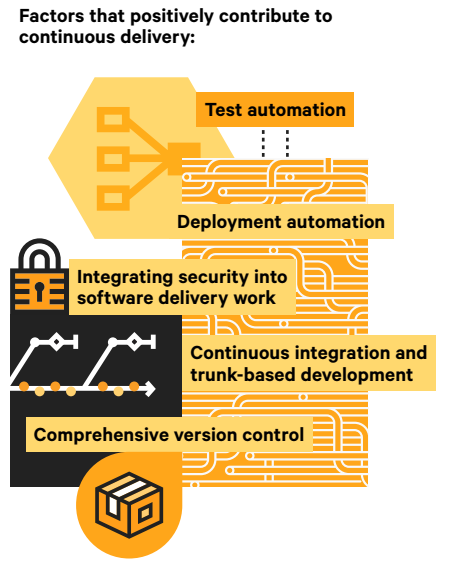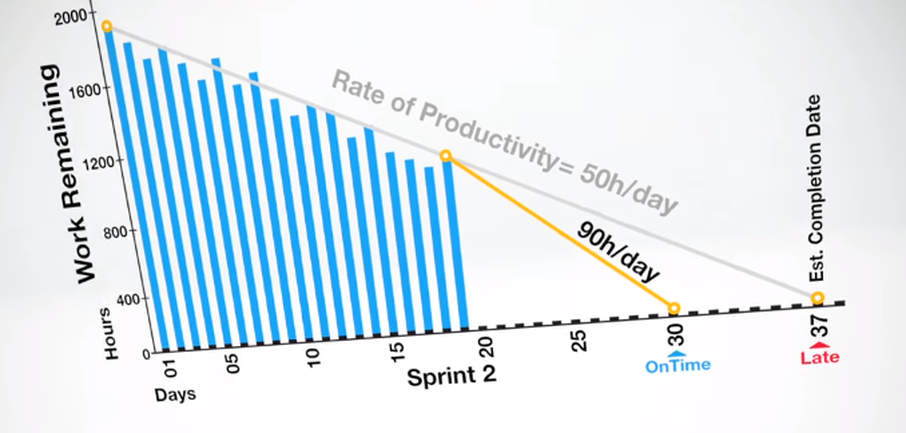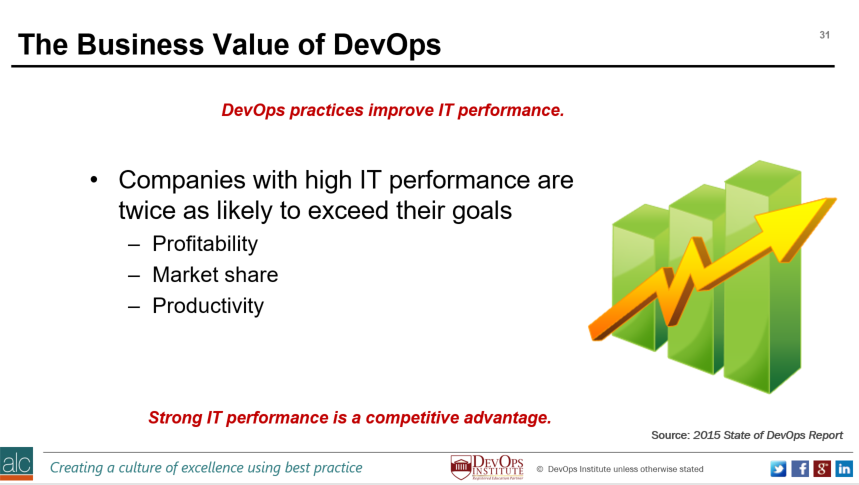|
There are so many definitions around what DevOps is or isn't. One word that sums it all up: AUTOMATION DevOps in it's simplest form it's a cultural change that allows developers and operations staff to work together collaboratively to achieve various outcomes, over the traditional IT delivery model. The key ones include:
The diagram below is taken from teh 2017 State of DevOps report, and shows some of the positive factors when a DevOps culture is harnessed: So now we can see that DevOps may have some value, how do we transform our culture? Well, for one it takes time, and two, there are a number of key principles that I'd suggest focusing on, to drive this cultural change:
The key is to start with a small project, and measure the success. Not over 10 weeks, but say 2-4 weeks. How is this possible?
The next steps are to then work with your colleagues to start applying these Agile practices in day-to-day use. By introducing the techniques into a small project, you're allowing staff to fail-fast and quickly learn how to suceed. You're also exposing them to Agile practices, with informal on-the-job training. You should also be seriously considering a cloud solution to reduce OPEX risk. So where from here? It comes down to getting your supporters excited about these new methods and helping them understand the benefits to everyone. This could include:
Still not convinced? Have a look at these top three great resouces I can recommend looking at:
Paul Colmer is a lead digital architect and cloud instructor for ALC training and consulting: www.alctraining.com.au/courses/cloud-computing/
https://twitter.com/DigitalColmer
1 Comment
|
CategoriesAll Active Directory AI Architecture Big Data Blockchain Cloud Comedy Cyber DevOps Driverless Cars MicroServices Office 365 Scaled Agile Social Media AuthorPaul Colmer is an AWS Senior Technical Trainer. Paul has an infectious passion for inspring others to learn and to applying disruptive thinking in an engaging and positive way. Archives
May 2023
|





 RSS Feed
RSS Feed